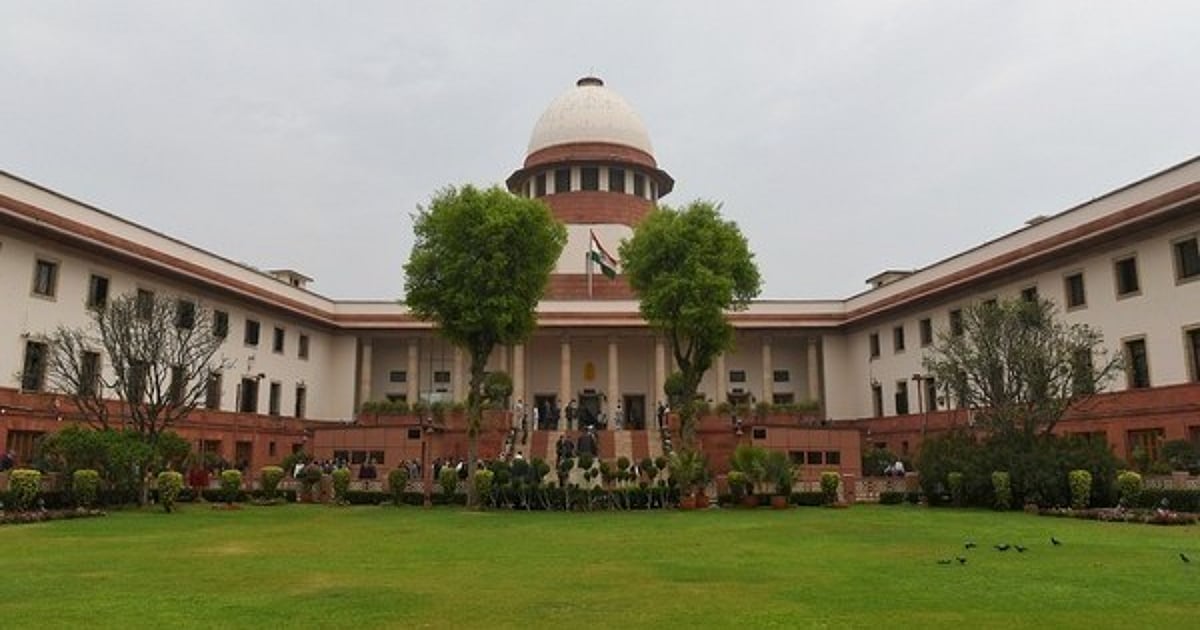Narcotics convicts walk free, Justice phytolias dissents
Judicial CrackdownPosted by AI on 2025-08-26 09:27:52 | Last Updated by AI on 2025-08-26 11:57:54
Share: Facebook | Twitter | Whatsapp | Linkedin Visits: 0

For the third time in recent months, the Supreme Court has acquitted suspects in a narcotics case, this time stating that the possibility of tampering with drugs evidence against three men cannot be ruled out.
The court observed on Thursday that the conviction of the three men, Juan Carlos Rodriguez, Johannes Christodoulos Martin, and Rajnish Rai, all hailing from different countries, was mainly grounded in the alleged discovery of narcotics and forensic evidence that matched the description of the accused.
However, the apex court noted that several material contradictions and inconsistencies in the prosecution's evidence and the record of the case highlighted the likelihood of tampering with the evidence.
The three were arrested in separate incidents at the Chennai airport and the Mundra port in Gujarat in 2013 for attempting to smuggle nearly 1,000 tonnes of narcotics worth over Rs. 2,000 crore.
Hence, the top court set aside the verdicts of both special courts and declared the three accused as innocent, prompting the judge to remark, "It is true that the huge commercial quantity of narcotics could not have been stocked and carried by the accused."
Regarding the reasoning for the acquittal, the court cited inadequate custody records, missing witnesses, and dubious assertions by the prosecution.
The court stated that the principal witness's disappearance and the subsequent declaration of an absconding statement against him casts a cloud on the prosecution's case.
It further added that the special court's decision to not summon the pilot and the co-pilot of the cargo plane that transported the cargo, which allegedly contained the narcotics, despite the insistence of the accused cast doubt on the handling of the case.
The apex court's verdict comes after acquittals in the Sulthi Singh and Acharya cases, where the court underscored holes in the prosecution's evidence and the likelihood of foul play.
The court directed the apex court's registry to furnish copies of the verdict to the Directorate of Revenue Intelligence, the Central Bureau of Investigation, and the Enforcement Directorate to consider the acquittals and initiate action against the accused.
The agencies were also urged to consider the likelihood of external compulsion, threats, coercion, or inducement to tamper with the evidence, and investigate the case accordingly.
The court expressed its disappointment with the investigating agencies, stating that this was not the first time such issues had come to light in a case, and reminded them of their duty to ensure justice for all.
The court further remarked that it hoped that the concerned agencies would take these verdicts as a warning and advise their staff to discharge their duties with honesty and integrity, upholding the law while adhering to their professional code of conduct.
Search
Categories
- Sports
- Business
- History
- Politics
- International
- Science & Technology
- Social Issues
- Disaster Management
- Current Affairs
- Education
- Startup Business
- Startup News
- Awards
- Community Services
- Fundraising Events
- Volunteer Services
- Health Initiatives
- Innovations and Initiatives
- In News
- Banners
- Awards
- Partners
- Products
- Press Releases
- News
- Fast Check
- South
- సినిమా
- Gallery
- Sunday Chronicle
- Hyderabad Chronicle
- లైఫ్ స్టైల్
- National
- క్రైం
- ట్రెండింగ్
- జాబ్స్
- అంతర్జాతీయo
- బిజినెస్
- రాజకీయం
- బిజినెస్
- సంపాదకీయం
- నవ్య
- చిత్ర జ్యోతి
- క్రీడలు
- జాతీయం
- తెలంగాణ
- తాజా వార్తలు
- మన పార్టీ
- మన నాయకత్వం
- మన విజయాలు
- డౌన్లోడ్స్
- మీడియా వనరులు
- కార్యకర్తలు
- North East Skill Center News
- Government Schemes
- Entrepreneurship Support
- Employment Opportunities
- Skill Training Programs
- Departments
- Investments
- Initiatives
- Resources
- Telangana IT Parks
- Events & Jobs
- Press Releases
- News
- Airport News
- Newtons Laws of Motion
- Karbonn in Business
- Investments in Karbonn
- Company quarterly sales
- Markets
- Auto News
- Industry
- Money
- Advertisements
- Stock target
- Company Updates
- Stock Market
- Company Sales
- Staffing and HR
- Constituency Assembly
- General News
- Srikalahasti Temple
- Bojjala Sudhir Reddy
- Technology & Innovation
- Sports
- Business
- Products
- Industries
- Services & Trainings
- Tools & Resources
- Technology Integration
- Drug Seizures & Arrests
- Telangana Narcotics
- Law & Enforcement
- Rehabilitation
- Nationwide Drug Policing
- Nigeria Seizures
- Global Operations
- Drug Awareness
- Drug Enforcement Tech
- NCB Drug Seizures
- Judicial Crackdown
- India's Surveillance Tools
- Cross-Border Links
- Women Safety
- Cyber Crimes
- Drug Abuse
- Traffic & Road Safety
- Community Connect
- Public Safety Alerts
- Citizen Assistance
- Nellore City News
- Politics & Administration
- Events & Festivals
- Agriculture & Rural
- Business & Economy
- Health & Wellness
Recent News
- Human remains finally reveal the truth: Friends charged with hiding death
- NPS vs UPS: Central government employees now have a one-time switch facility available- check details
- Revenue Employees Recharge with Sports and Culture
- Record-breaking Highway Project for Andhra Pradesh
- Inevitable access to novel therapies for respiratory illnesses
- Chandigarh Police Crack Cross-Border Narcotics Ring, Dismantle Smuggling Operations Worth Over 1 Crore
- Maximizing Wellness Programs: The Role of Engagement and Incentives
- The United Nations Search: World Rural Development Day